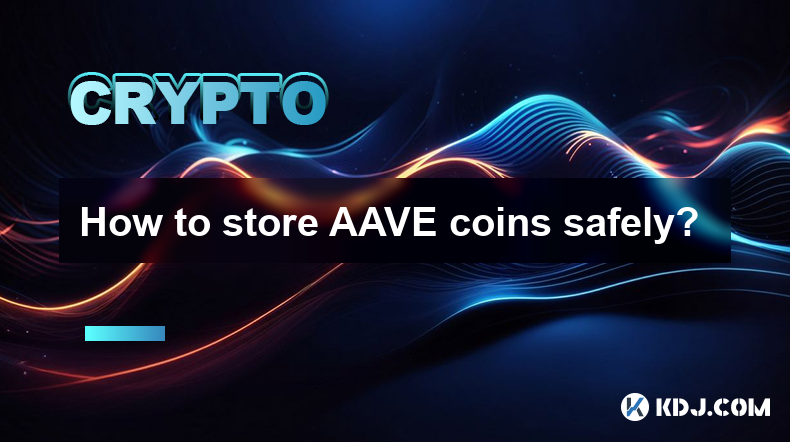-
 Bitcoin
Bitcoin $106,731.2224
-1.05% -
 Ethereum
Ethereum $2,444.9804
-1.20% -
 Tether USDt
Tether USDt $1.0003
0.01% -
 XRP
XRP $2.1882
0.09% -
 BNB
BNB $651.1435
-0.61% -
 Solana
Solana $148.3252
-2.09% -
 USDC
USDC $1.0000
0.01% -
 TRON
TRON $0.2787
0.55% -
 Dogecoin
Dogecoin $0.1598
-3.16% -
 Cardano
Cardano $0.5520
-2.43% -
 Hyperliquid
Hyperliquid $39.0960
-2.64% -
 Bitcoin Cash
Bitcoin Cash $516.9519
2.98% -
 Sui
Sui $2.7011
-2.95% -
 Chainlink
Chainlink $13.0582
-1.71% -
 UNUS SED LEO
UNUS SED LEO $8.9250
-2.53% -
 Stellar
Stellar $0.2359
-0.18% -
 Avalanche
Avalanche $17.3856
-3.73% -
 Toncoin
Toncoin $2.8095
-3.56% -
 Shiba Inu
Shiba Inu $0.0...01121
-1.95% -
 Litecoin
Litecoin $85.2795
-0.85% -
 Hedera
Hedera $0.1471
-2.15% -
 Monero
Monero $319.8004
1.12% -
 Dai
Dai $1.0001
0.01% -
 Ethena USDe
Ethena USDe $1.0001
0.02% -
 Bitget Token
Bitget Token $4.5344
-1.07% -
 Polkadot
Polkadot $3.3224
-2.96% -
 Uniswap
Uniswap $6.9697
-2.75% -
 Aave
Aave $266.1658
-2.25% -
 Pepe
Pepe $0.0...09414
-3.41% -
 Pi
Pi $0.4913
-3.29%
How to store AAVE coins safely?
Safeguarding AAVE Coins: Utilizing a reputable exchange or wallet with 2FA, a hardware wallet for cold storage, regular backups, and phishing awareness ensures the secure storage of AAVE coins.
Dec 26, 2024 at 06:22 pm

Key Points:
- Choose a reputable cryptocurrency exchange or wallet.
- Enable two-factor authentication (2FA) for enhanced security.
- Consider storing your coins in a hardware wallet for cold storage.
- Back up your wallet regularly to prevent data loss.
- Be cautious of phishing scams and verify the authenticity of websites and emails.
How to Store AAVE Coins Safely
1. Choose a Reputable Cryptocurrency Exchange or Wallet
- Research and compare different cryptocurrency exchanges and wallets based on reputation, security features, and supported currencies.
- Opt for platforms with a strong track record, robust encryption, and regulatory compliance.
- Consider using exchanges that offer multi-factor authentication and insurance against losses due to hacks or other incidents.
2. Enable Two-Factor Authentication (2FA)
- Enable 2FA on your cryptocurrency exchange or wallet account. This adds an extra layer of security by requiring a separate verification code sent to your phone or email every time you log in or make a transaction.
- 2FA helps prevent unauthorized access to your account even if your password is compromised.
3. Consider Storing Your Coins in a Hardware Wallet
- For enhanced security, consider storing your AAVE coins in a hardware wallet, such as the Ledger Nano X or Trezor Model T. These dedicated devices securely store your private keys offline, reducing the risk of theft or hacking.
- Hardware wallets generate and store private keys locally, making them immune to online attacks and malware.
4. Back Up Your Wallet Regularly
- Regularly back up your cryptocurrency wallet to protect against data loss due to technical issues or device failure.
- Create a backup file that stores your wallet's private keys and passphrase securely.
- Store the backup file in multiple locations, such as your computer, a USB drive, and a cloud storage service.
5. Be Cautious of Phishing Scams
- Be wary of phishing scams that attempt to trick you into revealing your login credentials or private keys.
- Always check the authenticity of websites and emails before entering sensitive information.
- Look for suspicious links or language and verify the URLs to ensure they are legitimate.
FAQs
Q: What's the safest way to store AAVE coins?
- A: The safest way to store AAVE coins is to use a combination of a reputable cryptocurrency exchange or wallet with enabled 2FA, coupled with the use of a hardware wallet for cold storage.
Q: How often should I back up my wallet?
- A: It's recommended to back up your wallet regularly, especially after making any changes to account settings or adding new addresses. A good practice is to create backups after every major transaction or significant change.
Q: Can I store my AAVE coins on a mobile wallet?
- A: Yes, you can store your AAVE coins on a mobile wallet, but it's important to choose a reputable app with robust security features, such as 2FA and biometric authentication. Ensure that the wallet is regularly updated with the latest security patches.
Q: What should I do if my exchange or wallet gets hacked?
- A: If your exchange or wallet is hacked, immediately change your password and enable 2FA. Contact the exchange or wallet's support team and inform them of the situation. If possible, transfer your AAVE coins to a more secure storage location.
Q: Are hardware wallets 100% secure?
- A: While hardware wallets offer a high level of security, they are not 100% immune to hacking. Ensure that the wallet's firmware is always up-to-date and that you store the wallet and its backup phrase in a secure location, resistant to physical theft or damage.
Disclaimer:info@kdj.com
The information provided is not trading advice. kdj.com does not assume any responsibility for any investments made based on the information provided in this article. Cryptocurrencies are highly volatile and it is highly recommended that you invest with caution after thorough research!
If you believe that the content used on this website infringes your copyright, please contact us immediately (info@kdj.com) and we will delete it promptly.
- Pepeto: The Frog-Themed Meme Coin Set to Outperform in Q3 2025?
- 2025-07-02 05:10:12
- Altcoins, Collaboration, and Trump: A Wild Ride in Crypto
- 2025-07-02 05:10:12
- Tether, Bitcoin, and the Public Listing Frenzy: A New Era for Corporate Crypto?
- 2025-07-02 04:30:12
- SEC, Crypto ETFs, and the Fast Track: A New Era?
- 2025-07-02 05:50:12
- Bitcoin Cash Bullish Breakout: Price Hints at a $1,700 Rally?
- 2025-07-02 05:50:12
- Token Yugijo, Coin Flips & Meme Coins: What's Hot?
- 2025-07-02 04:30:12
Related knowledge

How to customize USDT TRC20 mining fees? Flexible adjustment tutorial
Jun 13,2025 at 01:42am
Understanding USDT TRC20 Mining FeesMining fees on the TRON (TRC20) network are essential for processing transactions. Unlike Bitcoin or Ethereum, where miners directly validate transactions, TRON uses a delegated proof-of-stake (DPoS) mechanism. However, users still need to pay bandwidth and energy fees, which are collectively referred to as 'mining fe...

USDT TRC20 transaction is stuck? Solution summary
Jun 14,2025 at 11:15pm
Understanding USDT TRC20 TransactionsWhen users mention that a USDT TRC20 transaction is stuck, they typically refer to a situation where the transfer of Tether (USDT) on the TRON blockchain has not been confirmed for an extended period. This issue may arise due to various reasons such as network congestion, insufficient transaction fees, or wallet-rela...

How to cancel USDT TRC20 unconfirmed transactions? Operation guide
Jun 13,2025 at 11:01pm
Understanding USDT TRC20 Unconfirmed TransactionsWhen dealing with USDT TRC20 transactions, it’s crucial to understand what an unconfirmed transaction means. An unconfirmed transaction is one that has been broadcasted to the blockchain network but hasn’t yet been included in a block. This typically occurs due to low transaction fees or network congestio...

How to check USDT TRC20 balance? Introduction to multiple query methods
Jun 21,2025 at 02:42am
Understanding USDT TRC20 and Its ImportanceUSDT (Tether) is one of the most widely used stablecoins in the cryptocurrency market. It exists on multiple blockchain networks, including TRC20, which operates on the Tron (TRX) network. Checking your USDT TRC20 balance accurately is crucial for users who hold or transact with this asset. Whether you're sendi...

What to do if USDT TRC20 transfers are congested? Speed up trading skills
Jun 13,2025 at 09:56am
Understanding USDT TRC20 Transfer CongestionWhen transferring USDT TRC20, users may occasionally experience delays or congestion. This typically occurs due to network overload on the TRON blockchain, which hosts the TRC20 version of Tether. Unlike the ERC20 variant (which runs on Ethereum), TRC20 transactions are generally faster and cheaper, but during...

The relationship between USDT TRC20 and TRON chain: technical background analysis
Jun 12,2025 at 01:28pm
What is USDT TRC20?USDT TRC20 refers to the Tether (USDT) token issued on the TRON blockchain using the TRC-20 standard. Unlike the more commonly known ERC-20 version of USDT (which runs on Ethereum), the TRC-20 variant leverages the TRON network's infrastructure for faster and cheaper transactions. The emergence of this version came as part of Tether’s...

How to customize USDT TRC20 mining fees? Flexible adjustment tutorial
Jun 13,2025 at 01:42am
Understanding USDT TRC20 Mining FeesMining fees on the TRON (TRC20) network are essential for processing transactions. Unlike Bitcoin or Ethereum, where miners directly validate transactions, TRON uses a delegated proof-of-stake (DPoS) mechanism. However, users still need to pay bandwidth and energy fees, which are collectively referred to as 'mining fe...

USDT TRC20 transaction is stuck? Solution summary
Jun 14,2025 at 11:15pm
Understanding USDT TRC20 TransactionsWhen users mention that a USDT TRC20 transaction is stuck, they typically refer to a situation where the transfer of Tether (USDT) on the TRON blockchain has not been confirmed for an extended period. This issue may arise due to various reasons such as network congestion, insufficient transaction fees, or wallet-rela...

How to cancel USDT TRC20 unconfirmed transactions? Operation guide
Jun 13,2025 at 11:01pm
Understanding USDT TRC20 Unconfirmed TransactionsWhen dealing with USDT TRC20 transactions, it’s crucial to understand what an unconfirmed transaction means. An unconfirmed transaction is one that has been broadcasted to the blockchain network but hasn’t yet been included in a block. This typically occurs due to low transaction fees or network congestio...

How to check USDT TRC20 balance? Introduction to multiple query methods
Jun 21,2025 at 02:42am
Understanding USDT TRC20 and Its ImportanceUSDT (Tether) is one of the most widely used stablecoins in the cryptocurrency market. It exists on multiple blockchain networks, including TRC20, which operates on the Tron (TRX) network. Checking your USDT TRC20 balance accurately is crucial for users who hold or transact with this asset. Whether you're sendi...

What to do if USDT TRC20 transfers are congested? Speed up trading skills
Jun 13,2025 at 09:56am
Understanding USDT TRC20 Transfer CongestionWhen transferring USDT TRC20, users may occasionally experience delays or congestion. This typically occurs due to network overload on the TRON blockchain, which hosts the TRC20 version of Tether. Unlike the ERC20 variant (which runs on Ethereum), TRC20 transactions are generally faster and cheaper, but during...

The relationship between USDT TRC20 and TRON chain: technical background analysis
Jun 12,2025 at 01:28pm
What is USDT TRC20?USDT TRC20 refers to the Tether (USDT) token issued on the TRON blockchain using the TRC-20 standard. Unlike the more commonly known ERC-20 version of USDT (which runs on Ethereum), the TRC-20 variant leverages the TRON network's infrastructure for faster and cheaper transactions. The emergence of this version came as part of Tether’s...
See all articles

























































































